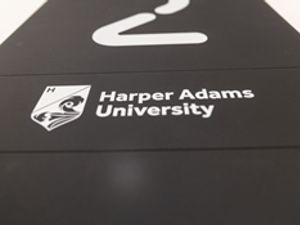The ups and downs of the airborne life
Whether getting groggy with the Gurkhas or trimming the treetops, life for one air despatcher rarely saw a dull moment. Ben Bentley straps himself in for a bumpy ride
Whether getting groggy with the Gurkhas or trimming the treetops, life for one air despatcher rarely saw a dull moment. Ben Bentley straps himself in for a bumpy ride.
Mike Childs knew how to throw a goat out of an aeroplane. He had a similar way with chickens.
"The gurkhas would only have live animals," he says. "They had to kill them in a particular way."
Mike, from Ditton Priors, was one of the so-called "black overall wonders", a member of the world famous 55 Carfax Troop of the Air Despatch Squadron, part of the Royal Army Service Corps.
During the 1960s Borneo confrontation against the Indonesian side of the island, he was one of the boys who took to the skies in rickety planes to drop vital supplies to troops in the jungles of Borneo.
Among them were gurkhas, with whom Mike developed many a friendship. Sometimes there would be drinks - like the time he took one of the fearsome fighters out for a night on the tiles.
"We got him absolutely sloshed," says Mike who instantly forgot about the incident, as you do when you have one over the eight. Unfortunately the gurkha didn't forget.
"Six months later I had to go in front of the CO - and I'd never had to go in front of a CO in my life.
"He said to me 'About six months ago, did you take a gurkha out for a bit of drink?' I thought, here we go, I'm in for it now.
"The CO said: 'He's a married man who is scrimping and saving for his family back home. And now he wants to take you out for a drink - and I'm ordering you to go out on the lash with him again'."
There were other examples of gurkha hospitality with warm rum, of which Mike has little recollection - apart from waking up in a raffia hut they had made for him to sleep it off.
An affinity for all things airborne was triggered when Mike joined the 1200 Squadron Air Training Corps, Much Wenlock, at the age of 10.
Several years later in April 1965, after completing his Army training, he plumped to join the Air Despatch Corps and was told there was a trip on to the Far East.
"Two days before we went I was told it was for two-and-a-half years," he says, now aged 65. "When you are 18 life is so exciting."
In a spot of history-making, Mike flew out to serve in the confrontation in the first RAF Comet aircraft, which should have been an experience, "but all I could smell was orange juice, tea and babies' nappies".
He continues: "My first flight as an Air Despatcher was in Kuching in Borneo, in a Valetta which they called "the Pig". We hit the trees on take-off and the tops of the trees were stuck in the wheels for the whole six-hour flight.
"I would not do now what I did back then."
Sometimes boxes of supplies never reached their intended destination. Flying in a massive Beverly aircraft close to the ground along a valley, a mountain rose up suddenly and the whole cargo had to be dumped so the aircraft could rise above the mountainside and avoid crashing into it.
Scrapes, he's had a few. But Mike was lucky. His squadron lost 59 men over the course of the conflict, the highest body count of any single Army squadron.
"I fell out of a Beverly aircraft, mid-air," he says. "I had my strap on and I only fell out about six foot and the lads pulled me back up, but it was pretty scary."
"We used to drop everything. We used to drop clusters of picket stumps which they would wrap barbed wire around. Someone threw a cluster too high from a side door and it lodged in the tail plane and stayed there until we landed two hours later."
He continues: "We were issued with reserve parachutes and I'd had mine for six months when the staff officer decided to have an inspection and ask us to open them up.
"The other lads' parachutes opened fine - 'pop', 'pop', 'pop'. Mine didn't. It turned out that for six months I had been flying with a blanket in the pack.
"And we were issued with revolvers and six rounds of ammunition. One day I asked 'Why six bullets?' and was told 'One for the enemy and five for yourself because we consider you to be such bad shots'."
As well as goats and munitions, drops also included 50-gallon tanks of fuel for helicopters, which would sometimes break away from their parachute and come back up at the plane ("It was the most exciting sight"); banana tree saplings to bribe tribesmen to be on their side ("It worked - they stopped killing us"); and eggs without breaking them ("It was the way we packed them").
When the conflict ended Mike was posted as a truck driver with 3 Squadron of the Royal Corps of Transport, ferrying troops, including gurkhas, to operations in Malaya.
It was here that he met Alan Davies of Stirchley who featured in the Shropshire Star in April, talking about his time spent with the gurkhas in Malaya during the late 1960s. Through spotting Alan in the article the pair have been reunited.
Mike, too, has fond memories of this time in Malaya.
"About six months after I was there someone found a Japanese bomb dump. We had to put sand in the back of the lorry then put these 'big ones' on the back and transport them 250 miles at 15mph to be put on a landing craft. It had a trap door and the bomb was pushed out of the door into the sea.
"I did think, this is a bit dangerous."
Safer really to have gurkhas in the back of the wagon.
"I had 12 gurkhas in the back and their sergeant major in the cab with me, talking ever so posh. At one point they jumped into the jungle and reappeared with stacks of leaves and sticks and built me a 'basher' to sleep in. And later I was requested to dine with the sergeant major. It was a very strong curry. Their hospitality was impeccable."
Mike wears an Air Despatch Association of Great Britain polo shirt every day and his home is something of a shrine to the corps and his 18 months in the jungle.
"It was hard work but it was the most exciting time of my life," he says.
More than 40 years after serving in the Far East, Mike has received a medal from the Malaysian government, honouring him for his help in the conflict.
He opens the medal case and inside is the Pingat Jasa Malaysia, awarded for distinction, gallantry, sacrifice or loyalty. He says: "It means everything. It's more important to me than my medals from our government. Everyone is very proud to have received it. Unfortunately we cannot wear it in line with British medals, it has to be below.
"I don't think anyone will take much notice of that though."




